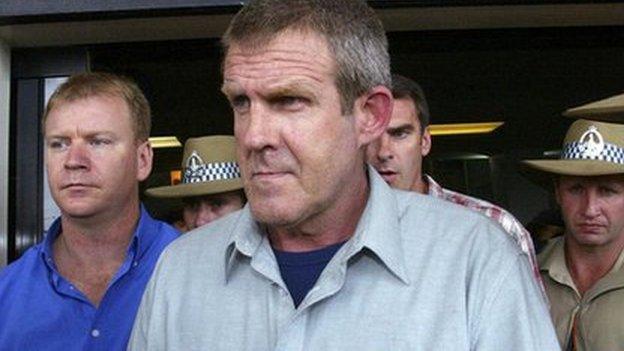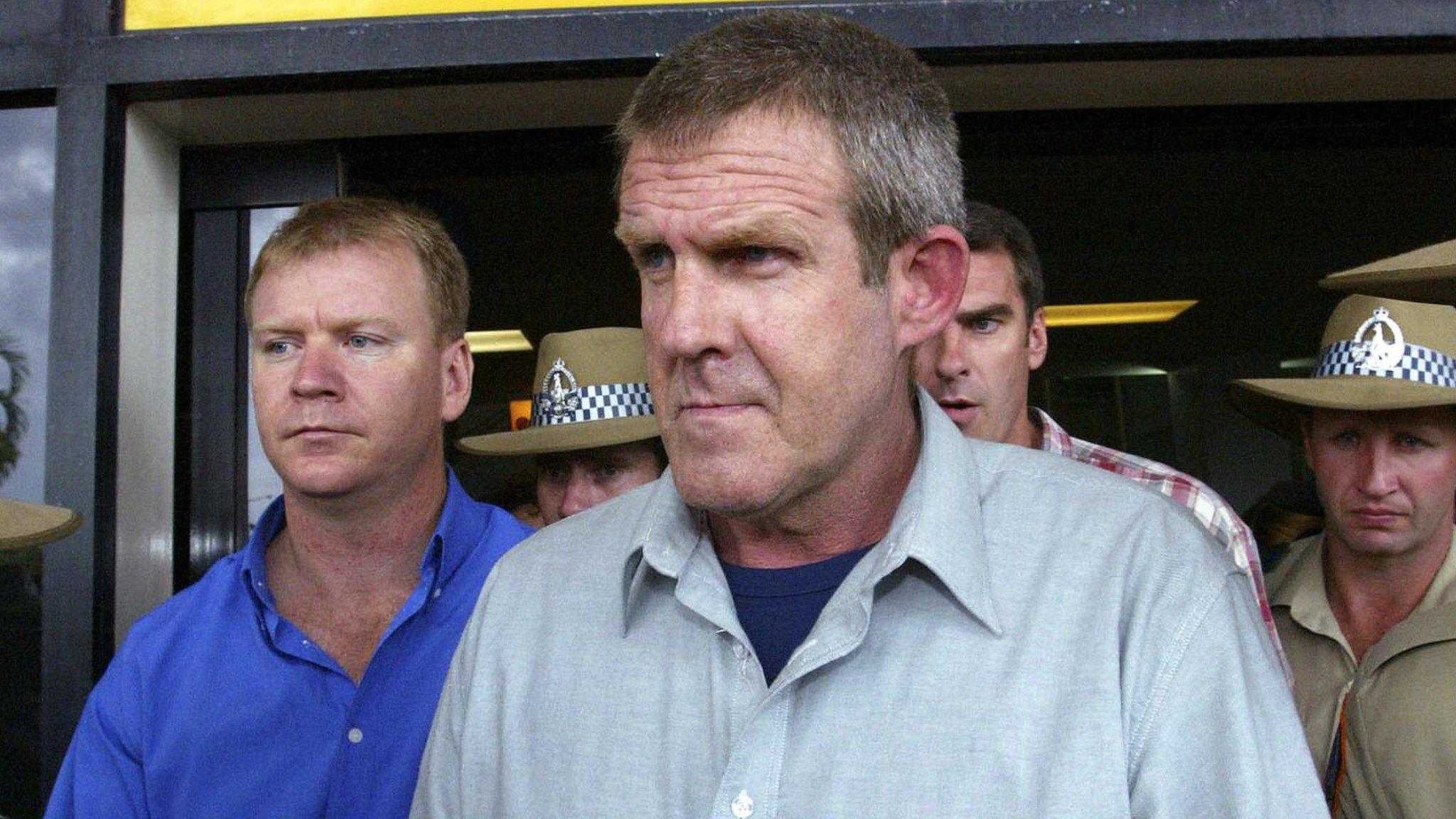Peter Falconio case: 'No body, no parole' rule for killer
- Published

Bradley Murdoch was jailed for Peter Falconio's murder
A man convicted of murdering British backpacker Peter Falconio in Australia may have to reveal the location of his body if he ever hopes to be released.
Bradley Murdoch is serving life for murdering Mr Falconio and attacking his girlfriend in the Australian outback in 2001. His body was never found.
But a proposed new "no body, no parole" law could mean Murdoch, 58, will be unable to apply for parole unless he reveals where Mr Falconio's body is.
He has always maintained his innocence.
Remote stretch of highway
Murdoch was convicted in 2005 of murdering Mr Falconio, 28 - who worked in Kent and was from Huddersfield - and assaulting his girlfriend Joanne Lees at gunpoint on a remote stretch of highway near Barrow Creek, about 200 miles north of Alice Springs.
He was given a minimum 28-year-sentence, during which time he is not eligible for parole.
However, the attorney general in the Northern Territory said the proposed law would mean Murdoch is unable to ever apply for parole, even at the end of his "no parole" period.

Peter Falconio and Joanne Lees
A spokesman for the attorney general's department said Murdoch's case was the only one in the Northern Territory that may be affected by the proposed legislation.
"He has always maintained his innocence and has never disclosed the location of Mr Falconio's body. But he has been found guilty by a jury of his peers," the spokesman said.
"He still has another 18 years to go before he would be eligible for parole."
Media in the UK and Australia have often reported on searches for Mr Falconio's body, while Murdoch has always maintained his innocence and has launched appeals - most recently in 2013.

Falconio murder timeline
14 July 2001 - Mr Falconio and Ms Lees are ambushed in northern Australia
16 July 2001 - Police find blood near the scene of the ambush
10 November 2003 - Bradley Murdoch is arrested
17 October 2005 - A trial hears DNA consistent with Murdoch was found on Ms Lees' shirt, on cable ties, and in the couple's campervan
13 December 2005 - Murdoch is found guilty
2007 - Murdoch loses his first appeal against his conviction in 2007
2014 - He withdraws a second appeal against his conviction

Attorney general of the Northern Territory, John Elferink, said the proposed legislation would mean a murderer "will be accountable for their own lack of contrition".
Mr Elferink added: "A contrite human being is one who seeks redemption by word and action. A person who does not display that desire for absolution after committing such a heinous crime is not a person that society wants walking amongst them.
"Victims' families have every right to closure, this will impress upon murderers that victims' rights are superior than theirs."
For a proposal to become law in the Northern Territory it has to be approved by the regional assembly's cabinet. A proposed bill is then prepared, debated, and voted on by assembly members.
A similar 'no body, no parole' law is already in place in the state of South Australia, while there are bills before state parliaments in Victoria and Western Australia.
- Published18 December 2013

- Published13 May 2012
